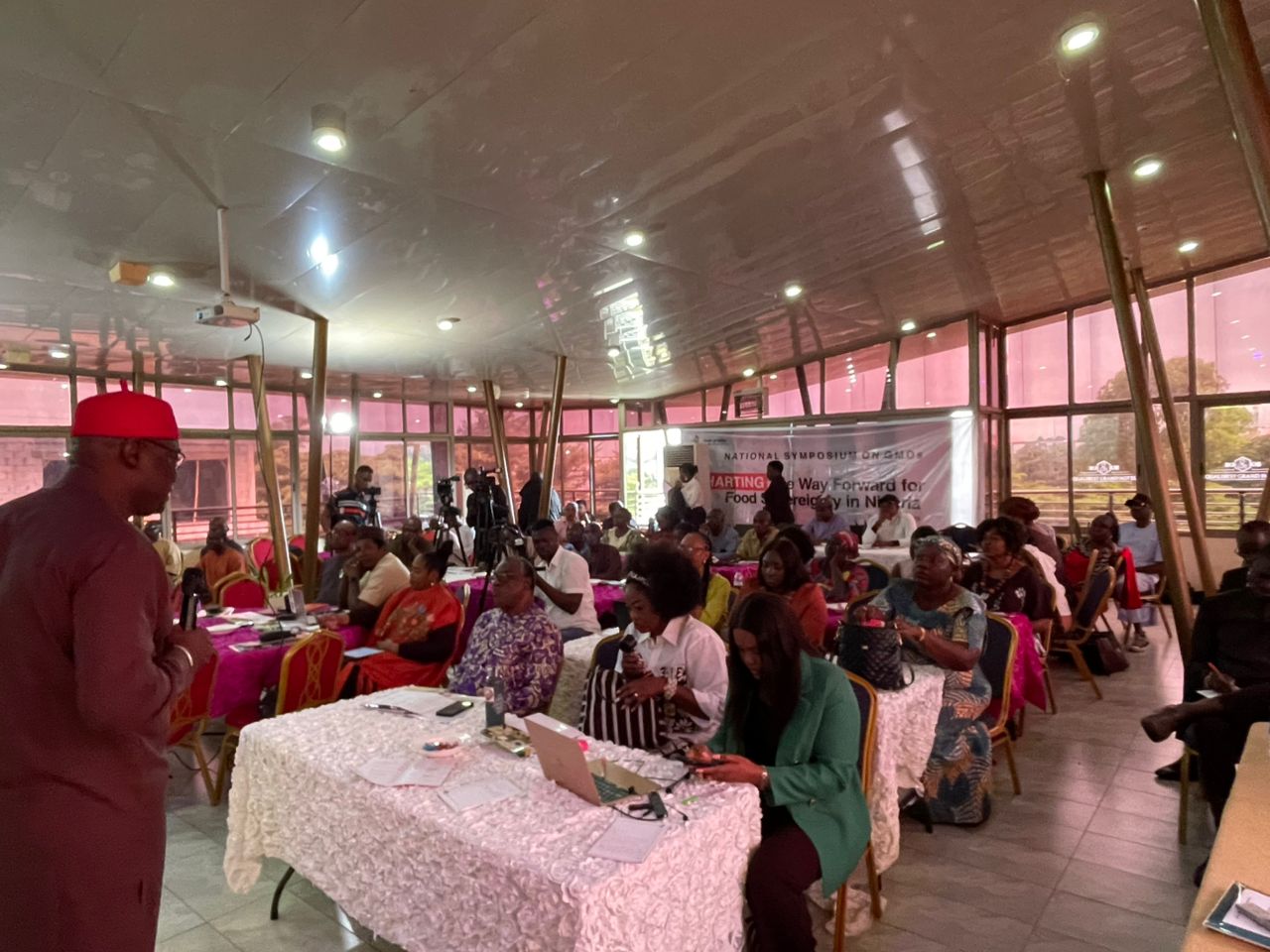Listeners:
Top listeners:
-
play_arrow
104.9FM Best rock music demo
-
play_arrow
Demo Radio Nr.1 For New Music And All The Hits!
-
play_arrow
Demo Radio Techno Top Music Radio
-
 play_arrow
play_arrow
Police Commissioner Launches Weapon and Riot Control Training for FCT Officers Democracy Radio

By Oluwakemi Kindness

Environmentalists and scientists have raised fresh alarm over the rising adoption of genetically modified organisms (GMOs) in Nigeria, warning that the country risks both a new form of colonialism and serious health and environmental consequences.
Speaking in Abuja on Monday at a National Symposium on GMOs, charting the way forward for food sovereignty in Nigeria, the Director of the Health of Mother Earth Foundation (HOMEF), Dr. Nnimmo Bassey, cautioned that GMOs undermine Africa’s agricultural independence while exposing citizens to hidden dangers.
Dr. Bassey described the aggressive promotion of GMOs as “a deliberate subversion of Africa’s food systems” that entrenches dependency on foreign corporations.
“Today, the same colonial patterns are resurfacing through GMOs,” he said. “Farmers are being forced into dependence on foreign seed companies whose patented seeds cannot be replanted after the first harvest. This is a new form of colonial control — not through military force, but through food dependency.”
Tracing the roots of what he termed *food colonization*, Bassey recalled how colonial powers redirected African agriculture toward cash crop exports at the expense of local food needs. He warned that the trend is repeating, with GMOs eroding biodiversity, displacing indigenous seeds, and criminalizing traditional seed-saving practices.
“Food colonization is a form of enslavement and disempowerment,” he stressed. “Breaking free from it means reclaiming control over our seeds, our farming practices, and our diets.”

A Molecular biologist Dr. Ifeanyi Casmir, echoing the concerns from a scientific standpoint, described GMOs as “a cocktail of promises and pain.”
“I have studied over 204 publications in 179 scientific journals,” he said at a symposium on biotechnology and food safety. “The overwhelming evidence is that most of the promises made by GMO promoters have either been contradicted or disproven.”
Casmir cited Burkina Faso’s failed Bt cotton project, where farmers lost their traditional cotton variety without gaining higher yields, as well as similar negative outcomes in India and South Africa.
He warned that herbicide-tolerant GMO crops encourage heavy chemical use, leading to residues that have already cost Nigeria its beans exports to Europe.
“Every genetic modification introduces a novel protein, and novel proteins have allergenic potential,” he cautioned. “Many GM crops have been found to contain trypsin inhibitors that affect digestion and reproductive health.”

Professor Tatfeng Mirabeau of Niger Delta University also questioned Nigeria’s readiness to embrace GMOs, noting that the country lacks the regulatory safeguards to protect its citizens.
“Countries with advanced technologies are banning these products, yet Nigeria is embracing them,” he said. “Africa must not be turned into a laboratory for GMO experiments.”
Both environmental and scientific voices urged the government to declare an immediate moratorium on GMO approvals and imports, pointing out that once released into the environment, genetically engineered organisms are difficult to withdraw.
The House of Representatives had previously recommended stopping GMO adoption, but concerns remain that regulatory agencies are still fast-tracking approvals.
The activists summed up the scientists’ position: “Nigeria needs food, but GMOs are not the way out. With countless doubts at biological, environmental, and socio-economic levels, the precautionary principle demands that we stop before it is too late.”
Written by: Democracy Radio
#DemocracyRadio #Food Security #Food Sovereignty #GMOs #HOMEF
Similar posts
NOA Warns Traders Against Hoarding, Price Manipulation During Ramadan, Lent
todayFebruary 21, 2026 2
Copyright Democracy Radio -2024


